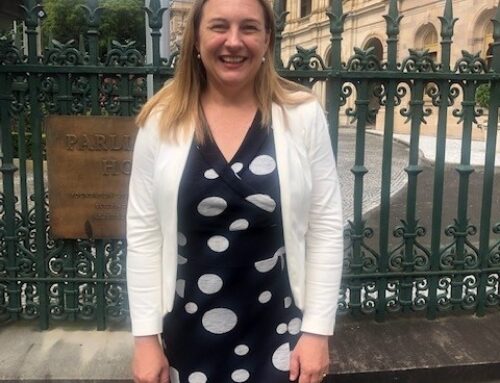“Sorry” seems to have a bad wrap in our culture these days. When we were kids we were told to say sorry when we hurt someone, broke something or said something mean. It was ubiquitous and I do not remember ever questioning it.
When we grow up the word seems to be more loaded. Women, we are told, apologise too much. The implication is that we are apologising for our very existence and we need to stop.
Then there is the obsession with the potential legal ramifications of saying sorry. Twenty years ago, people would often ask me whether saying sorry to the stolen generation would mean taxpayers would need to pay compensation. I was astonished then and I still am that people seem to think that sorry comes with a price tag.

It has always been possible to apologise without accepting liability to pay compensation. I once saw a wonderful lawyer representing an insurer say to my client
I am going to make some submissions now to your lawyer about some technical issues relating to your capacity to be compensated for your injuries. I must emphasise that these are technical legal issues surrounding your case and in no way diminish what you have been through. There is no question that you have had a terrible time and I am truly sorry for all you have suffered.
Those words were irrelevant to the determination of liability. They cost her client nothing. They did however mean the world to my client.
Given the clear public concern about apologising, the Queensland government introduced an apology provision in the Civil Liability Act in 2002. Similar legislation was enacted in various jurisdictions around Australia. Section 72D says
(1)An apology made by or on behalf of a person in relation to any matter alleged to have been caused by the person—
(a)does not constitute an express or implied admission of fault or liability by the person in relation to the matter; and
(b)is not relevant to the determination of fault or liability in relation to matter.
(2)Evidence of an apology made by a person is not admissible in any civil proceeding as evidence of the fault or liability of the person in relation to the matter.
Despite this, there still seems to be resistance to apologising.
In some cases, an apology is enough to convince someone not to seek legal advice at all. If people feel heard and validated, that may be enough for them. I have even seen one case where the failure to apologise has caused the injury itself. If there had been an apology, there would have been no case to answer!
Of course we do not need to apologise for our existence. However, if we hurt someone, let them down, break their property or inconvenience them, there is no reason not to say sorry and many many reasons to apologise.






